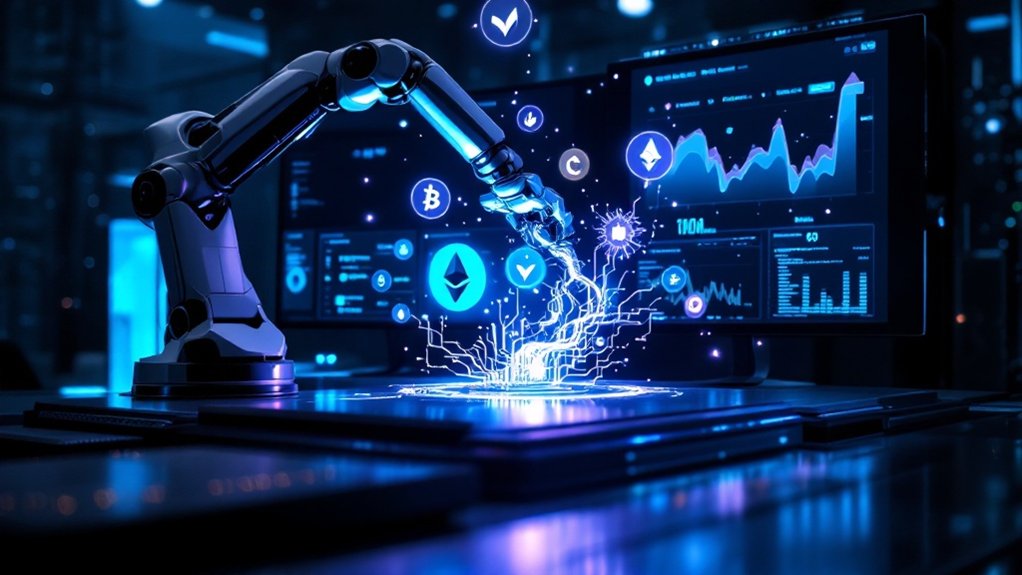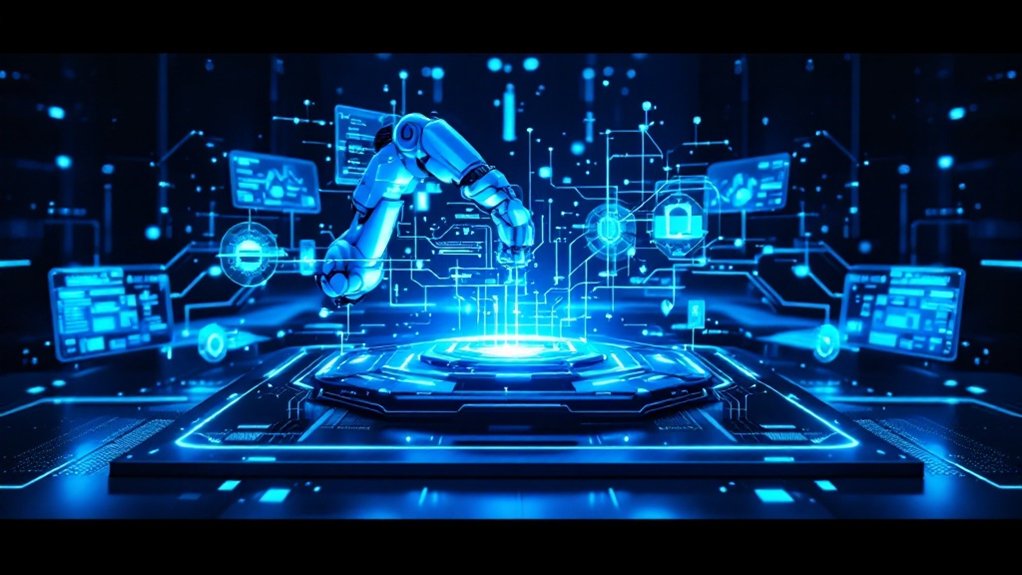AI agents are digital workers that never sleep or complain. They perceive environments, reason through problems, and take action—all autonomously. Using natural language processing and machine learning, these systems break down complex goals into manageable tasks. They adapt to changing circumstances without the human hangups of resistance or fatigue. When needed, they know when to call in human help. The secret to their effectiveness? They're constantly learning from their own mistakes.

Imagine a digital worker that never sleeps, never complains, and never asks for a raise. That's an AI agent in essence. These autonomous software programs handle tasks independently using artificial intelligence, operating with minimal human babysitting. They perceive their environment, reason through problems, and take action—all while getting smarter over time. Pretty impressive for a bunch of code.
AI agents: digital workers who never sleep, never complain, and handle complex tasks while getting smarter every day.
AI agents are data-hungry machines. They devour information from everywhere—databases, documents, customer conversations, transaction records, you name it. Using natural language processing and real-time analysis, they make sense of this data tsunami. Machine learning algorithms help them decide what to do with all this information. Unlike humans, they don't need coffee breaks while processing gigabytes of data. The success of these agents relies heavily on data preprocessing to ensure quality input for decision-making.
Goals drive these digital workers. Sometimes humans set these objectives; other times, external triggers do the job. From simple email sorting to complex financial analysis, AI agents break down big goals into manageable chunks. And when circumstances change? They adapt. No dramatic sighs or resistance to change here. Professional AI trainers develop and refine these systems to ensure they meet performance standards and operate ethically.
Planning and execution come next. The agent maps out steps, then performs them autonomously. They trigger scripts, send alerts, and talk to other systems like CRMs or cloud services. When they hit something too complicated, they know when to call in human reinforcements. They're smart, not stubborn.
These agents get better with age. Through reinforcement learning, they refine their decision-making processes based on what worked before. They learn from mistakes without embarrassment or excuses. This continuous improvement means they handle dynamic environments with increasing skill. Their lightweight prompting layers enable enhanced functionality beyond what traditional chatbots can achieve.
The benefits are obvious. AI agents automate repetitive tasks, reducing human error while boosting efficiency. They crunch massive datasets for better decisions. They come in multiple varieties including utility-based agents that calculate the optimal choice by evaluating different options against specific criteria. They work around the clock without complaining about missing weekends. And when things get too complex? They know when to tag in a human. Not a bad arrangement at all.
Frequently Asked Questions
What Are the Key Ethical Concerns With AI Agents?
Ethical concerns with AI agents run deep.
Bias in algorithms leads to unfair outcomes—shocker. Privacy? Always at risk. These systems make decisions nobody understands, yet who's responsible when things go south? Nobody, apparently.
They're replacing human workers left and right. Then there's manipulation—AI influencing users without transparency.
And inequality? AI just amplifies existing social divides. Regulatory frameworks struggle to keep pace with development.
How Do AI Agents Differ From Traditional Software Applications?
AI agents adapt and learn over time.
Traditional software? Static without updates.
Big difference.
AI's decision-making is dynamic, analyzing patterns from massive datasets.
Old-school apps just follow preset rules—no flexibility whatsoever.
While AI requires higher upfront investment, it saves costs long-term by reducing human intervention.
Traditional software needs constant babysitting.
AI automates through predictions and patterns.
Traditional software? Just blindly follows instructions.
Shocking, right?
What Training Data Do AI Agents Use to Learn?
AI agents learn from a diverse range of training data. Text transcripts from conversations, voice recordings with various accents, and interaction logs provide essential foundations.
They consume everything from structured databases to messy, unstructured emails. Images, videos, and audio files round out their education for specialized tasks. The data gets cleaned, formatted, and sometimes artificially expanded.
Then it's fed into neural networks, reinforcement learning systems, or pre-trained models like GPT.
Can AI Agents Operate Without Internet Connectivity?
Yes, AI agents can absolutely operate offline. They use local data processing and pre-loaded models to function without the web.
Components like perception modules gather information while on-device processing handles the heavy lifting.
Examples? Jan AI Assistant works entirely offline.
There are trade-offs though. No internet means limited access to real-time data and updates. Plus, you'll need decent hardware—offline AI isn't kind to weak processors.
How Do Companies Ensure AI Agent Security and Privacy?
Companies safeguard AI agents through multiple layers of defense. They implement continuous monitoring systems, enforce strict access controls, and train employees on security protocols.
Zero-trust principles are essential—limiting data access to only what's necessary. Regulatory compliance with GDPR and similar frameworks isn't optional; it's survival.
Documentation and thorough risk assessments are standard practice. And let's be real—without AI gateways validating inputs, these systems would be sitting ducks for attackers.




